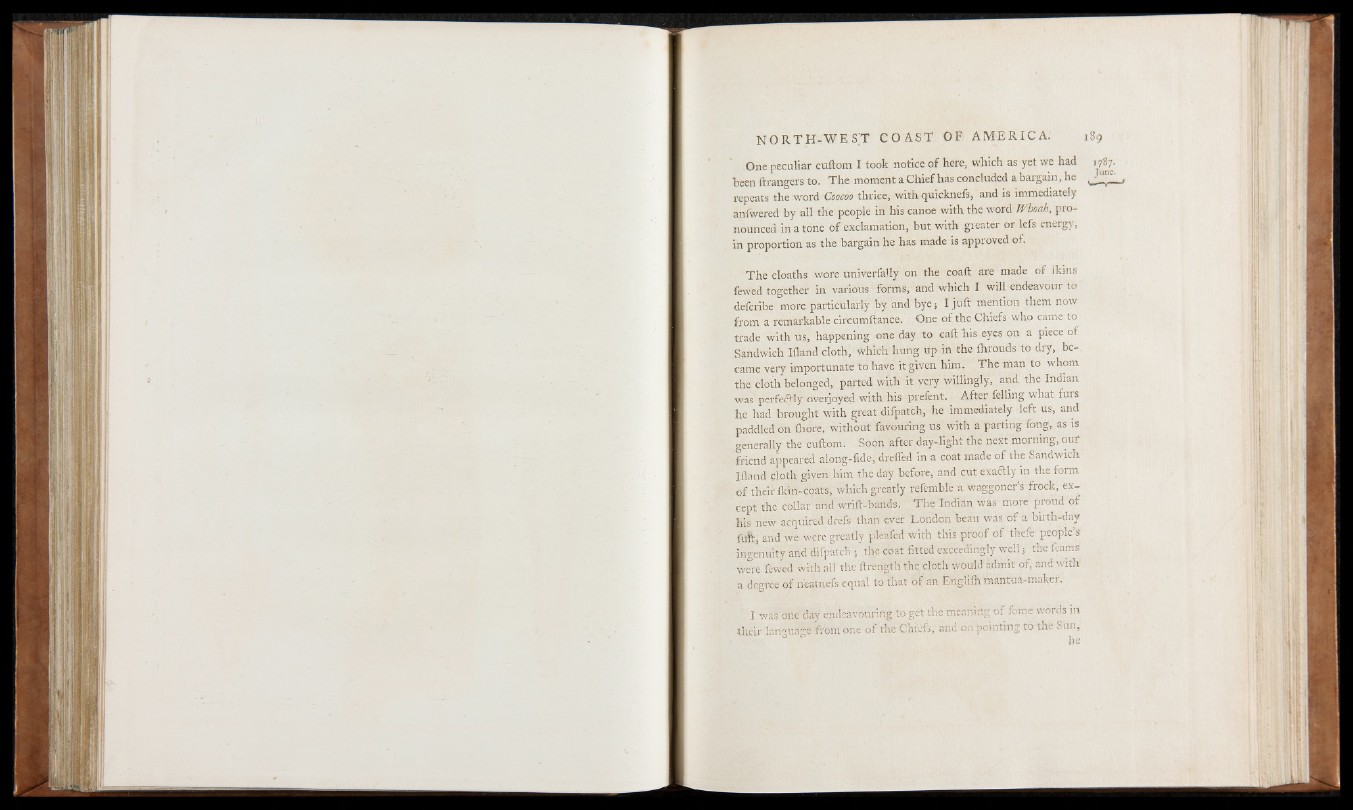
One peculiar cuftom I took notice of here, which as yet we had
been ftrangers to. The moment a Chief has concluded a bargain, he
repeats the word Coocoo thrice, with quicknefs, and is immediately
anfwered by all the people in his canoe with the word W boah, pronounced
in atone of exclamation, but with greater or lefs energy,
in proportion as the bargain he has made is approved of.
The cloaths wore univerfally on the coaft are made of Ikins
fewed together in various forms, and which I will endeavour to
defcribe more particularly by and bye; I juft mention them now
from a remarkable circumftance. One of the Chiefs who came to
trade with us, happening one day to call his eyes on a piece of
Sandwich Ifland cloth, which hung up in the Ihrouds to dry, be-,
came very importunate to have it given him. The man to whom
the cloth belonged, parted with it very willingly, and the Indian
was perfectly overjoyed with his prefent. After felling what furs
he had brought with great difpatch, he immediately left us, and
paddled on Ihore, without favouring us with a parting fong, as is
generally the cuftom. Soon after day-light the next morning, our
friend appeared along-fide, dreffed in a coat made of the Sandwich
Ifland cloth given him the day before, and cut exaftly in the foim
of their lkin-coats, which greatly refemble a waggoner’s frock, except
the collar and wrift-bands. The Indian was more proud of
his new acquired drefs than ever London beau was of a birth-day
fuft, and we were greatly pleafed with this proof of thefe people’s
ingenuity and difpatcli j the coat fitted exceedingly well j the feams
were fewed with all the ftrength the cloth would admit of, and with
a degree of n’eatnefs equal to that of an Engliih mantua-maker. I
I was one day endeavouring to get the meaning of fome words in
their language from one of the Chiefs, and on pointing to the Sun,
E he